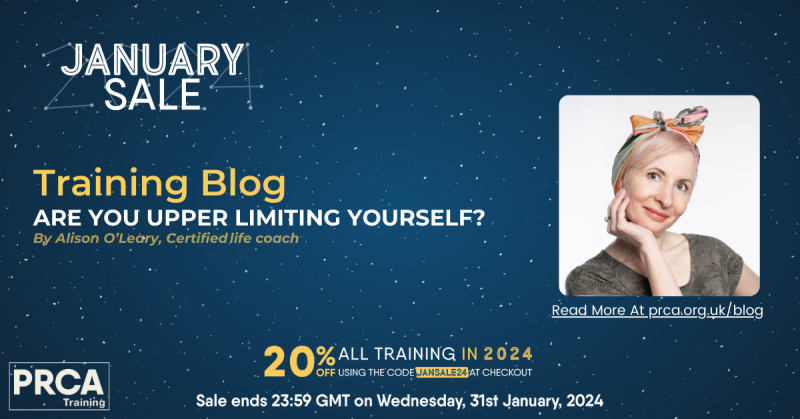
In the last few weeks, I’ve had three clients who’ve all made some amazing strides towards their goals, doing scary things outside of their comfort zones.
For context, Ava is building her own business from scratch; Catherine is going after a huge promotion; and Simon is taking steps to change his career.
But I noticed with each of them that straight after their brilliant wins, they started to self-sabotage.
After doing some bold outreach to potential clients and partners and getting some positive responses, Ava started questioning her approach, imagining those people would rescind their interest, and slowed down her follow ups.
After completing a successful interview with her existing employer for a sizeable promotion, Catherine started telling herself she wouldn’t get through to the final interview, that she’s likely the fallback candidate, and that she should pull out while she’s ahead.
After researching the best courses for up-skilling in his new chosen field and having an encouraging conversation with a key course tutor, Simon started to assume he wouldn’t get accepted, questioned the worth of applying for a place, and began stalling on his applications.
What was happening?
Each of them was experiencing the Upper Limit Problem.
Psychologist Gay Hendricks coined the term in his book, The Big Leap, and in a nutshell, it describes the subconscious self-sabotage that happens when we get a taste of something great, be it a promotion, a financial windfall, a great relationship, a health or fitness win, or any other measure of success.
Hendricks asserts that we each have an “inner thermostat setting” that determines the number of good feelings we allow ourselves to enjoy.
And when we hit a level of increased joy, success or abundance that supersedes the artificial thermostat limit we’ve placed on ourselves, we subconsciously invite in negative thoughts that cause us to stall or undo our positive actions and bring us back down to the level of happiness we’re most comfortable with.
Then we rationalise this by telling ourselves we are simply “being realistic” or “modest”, or that we’re doing our best not to “outshine others”.
Why do we unwittingly do this to ourselves?
Well, this mechanism of self-sabotage is the brain's subconscious way of ensuring that we stay within our "safe zone."
Essentially, upper-limit problems happen because our brains are naturally wired to avoid risk.
Which is all very well, but it can have lasting consequences that affect our long-term potential and success.
Now, if this feels uncomfortably familiar and you sense you're Upper Limiting yourself, there are two things you can do.
Firstly, start to examine where your own Upper Limit lies, so you know what you’re dealing with.
Notice when you experience discomfort as a result of any minor or major success, as this highlights your thermostat setting threshold and will show you where you’re putting a cap on your happiness.
The easy way to spot this discomfort is when you start talking negatively to yourself and potentially pulling back on any planned actions.
Secondly, deliberately focus on slow, steady, consistent growth.
Take it slow, and question limiting beliefs each time you come across them.
Challenge every negative thought, asking yourself if you can 100% know that it’s true? In pretty much all cases, the answer will be No!
Then dwell on the fact that it’s not a fait accompli and consider positive alternatives.
Every single time you do this (even if you don’t fully believe in the alternatives), you are gradually retraining your brain to consider success and joy as normal and safe.
This will increase your Upper Limit thermostat setting, helping you take ever bigger and bolder steps towards achieving the goals you dream of
Alison x
If you, or an aspiring or senior leader in your business, would like help navigating challenges like upper limiting, to maximise your contribution and support your professional progress, contact Souha Khairallah, Talent and Professional Development Director, PRCA at souha.khairallah@prca.org.uk, and ask for a no-strings consultation call with me.
I deliver structured coaching programmes that are tailored to the individual, helping people overcome barriers, capitalise on their innate strengths and realise their true potential.
About the author
Alison O’Leary is a certified life coach, specialised in career coaching through her practice, Live True. In a 20-year career she has held a number of senior management positions within the PR industry, most recently as Deputy Managing Director, Europe for Racepoint Global. Alison specialises in people development and combines insights, tools and methodologies from corporate and personal coaching work to help communications professionals realise their true potential for personal and organisational benefit. She partners with the PRCA to provide bespoke Senior Leader Coaching and Managing Performance to Improve Productivity Training. For more information contact souha.khairallah@prca.org.uk.
